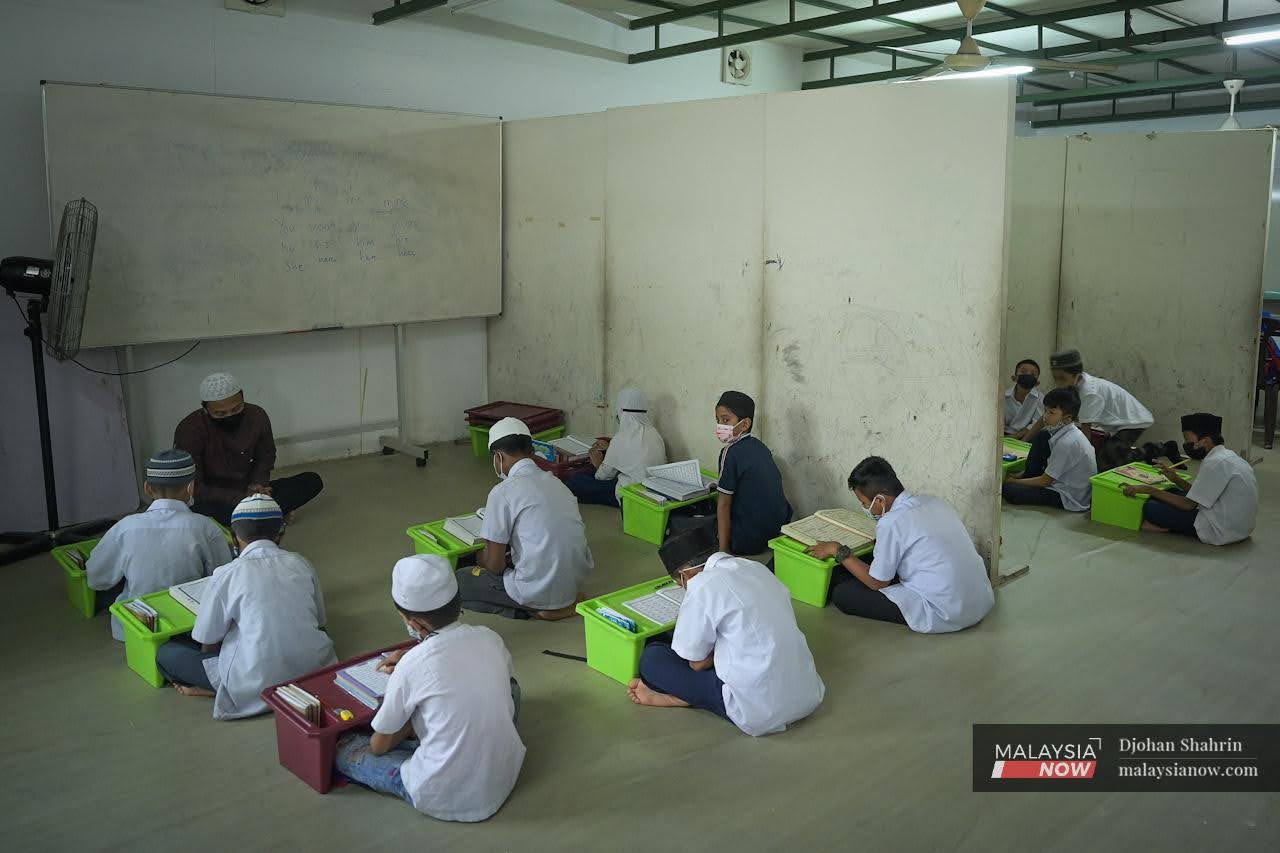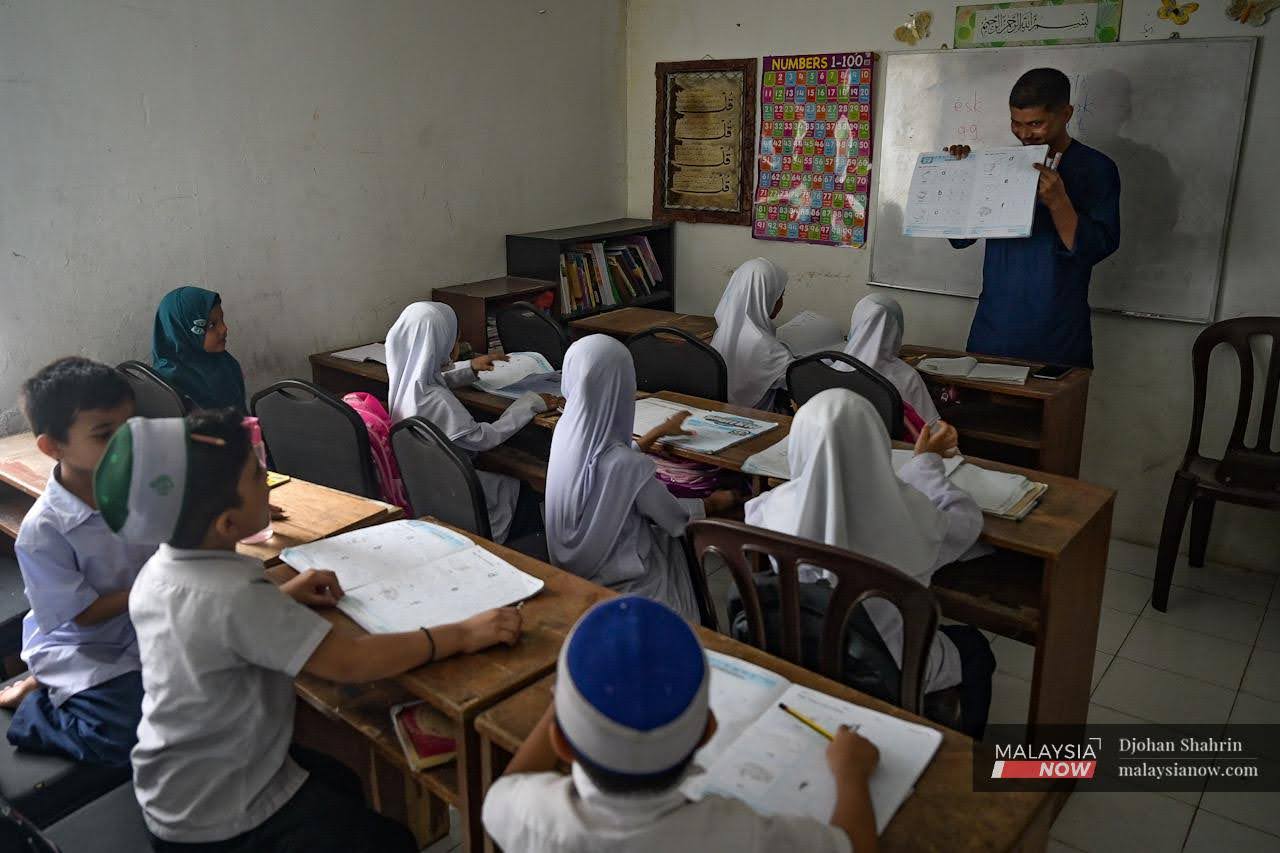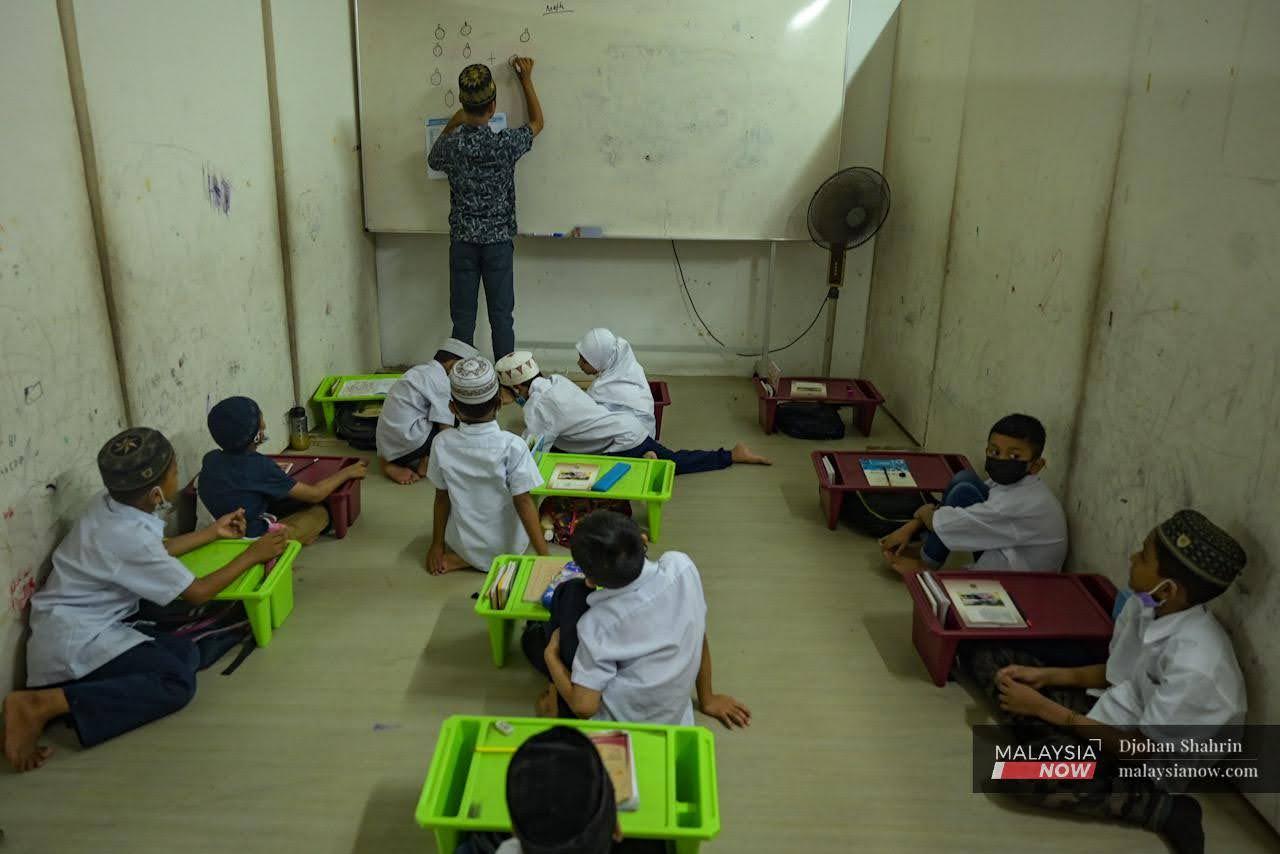Ampang refugee school struggles to provide for Rohingya children
The school runs entirely on donations and has been mired in financial difficulties since late last year.
Just In
In the heart of Ampang, Selangor, a small school for Rohingya refugee children is struggling to stay afloat amid a slew of financial challenges which put it at risk of having to shut down.
Its founder, Mohammad Sadek Ali Hossien, said the school has owed its landlord rental since November last year and can no longer afford to continue paying its staff.
“We are fortunate in the sense that our landlord understands we depend entirely on donations,” he told MalaysiaNow.
“We are still trying our best to pay the rent along with all of the other bills.”
But times are hard and these days, the Darul Eslah Rohingya Academy cannot even afford to prepare meals for its students.
The school is attended by 112 Rohingya children whose parents work in menial positions including as cleaners and garbage collectors.

It has four teachers including two full-time instructors.
At the moment, it needs a total of RM24,256 to cover rental arrears of RM750 a month and allowances of RM1,200 for its full-time staff in addition to utilities bills.
A recent thunderstorm that hit the area several months ago also damaged some of its electrical appliances, and now a number of its fans and lights are no longer working.
Sadek said the school could not afford to repair these.
Meanwhile, there is only one toilet on the premises – hardly enough to cater to over 100 students.
Darul Eslah Rohingya Academy was established in 2007, in a humble terraced house which the school eventually managed to expand with the help of donations in order to accommodate its students.
One of its teachers, Anwar Shah Mohammad Siddiq, has been with the school for the past seven years.
In addition to teaching the students English, he also ferries them to and from their homes.
“It’s hard work,” he told MalaysiaNow.
Nevertheless, he finds daily encouragement in his students and their enthusiasm to continue learning all that they can.
Aside from English, the teachers also conduct classes for Bahasa Melayu, mathematics and religious studies.

The upper storey of the house functions as the school library and the administrative office.
Downstairs, makeshift classrooms are sectioned off with room dividers. To one side, there is also a small kitchen.
Sadek, who previously worked with the United Nations in Malaysia, estimates that the school would need at least RM11,000 a month to continue operating.
“We don’t always get the optimum amount,” he said. “Whatever we get, we divide for use according to priority.”
Sadek believes there are some 20,000 Rohingya children in the country. In Ampang alone, there are 300, just over a third of whom are enrolled in Darul Eslah Rohingya Academy.
The others attend missionary schools and centres run by NGOs.

Another staff member, Jani Alam, works part-time at Darul Eslah Rohingya Academy teaching Bahasa Melayu. The rest of the time, he works at a clinic in the area.
“I worked at a car workshop for two months before that.
“My father died in 2018. My mother asked me to work as my brother was already married and could no longer afford to continue paying for my education.
“I don’t want my students to stop studying like I did,” he said, adding that he still harbours hope of continuing his studies at a higher level.
For Sadek, the greatest concern is what will happen to these children once they finish school.
“They have no documents and they are considered stateless. They aren’t allowed to further their studies here,” he said.
Without an education, he fears that they will end up involved in criminal activities.
His best hope is that they will become another of the school’s success stories.
“Some of our students have gone on to study in other countries like the US, Canada and Australia,” he said.
Subscribe to our newsletter
To be updated with all the latest news and analyses daily.
